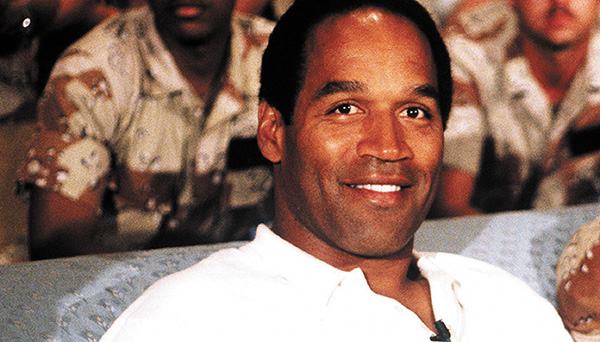Black History
OJ’s Recent Death Highlights Prostate Cancer And Black Men
O.J. Simpson, the renowned athlete and polarizing figure, passed away at the age of 76 due to prostate cancer. His life story intertwined unparalleled sports achievements with enduring controversy, leaving an indelible mark on American history.
#OJSimpson, #ProstateCancer, #NFL, #USC, #AmericanLegalHistory

By Stacy M. Brown
Senior National Correspondent
@StacyBrownMedia
NNPA Newswire
O.J. Simpson, a towering figure in both the sports world and the annals of American legal history, lost his battle with cancer at the age of 76. His family confirmed his death in a statement issued early on Thursday, April 11.
“On April 10, our father, Orenthal James Simpson, succumbed to his battle with cancer,” read the statement shared by Simpson’s family. “He was surrounded by his children and grandchildren.”
(New Journal and Guide’s Update To This NNPA Newswire Story: Subsequent news reports have disclosed that Simpson was diagnosed with prostate cancer, which is the second-leading cause of cancer deaths, according to the American Cancer Association.)
Simpson’s life story, a blend of unparalleled athletic achievement and enduring controversy, began in San Francisco, California, on July 9, 1947. His rise to prominence began at the University of Southern California (USC), where his prowess as a college football star catapulted him into the national spotlight. His remarkable talent on the field, including a legendary game-winning touchdown against rival UCLA, solidified his status as one of the most electrifying athletes of his era.
Simpson’s professional career initially experienced difficulties after the Buffalo Bills selected him with the first overall pick in the 1969 NFL draft. However, under the guidance of coach Lou Saban, he flourished, achieving feats that would etch his name in football history.
Notably, Simpson’s record-breaking 1973 season, during which he became the first player to rush for 2,000 yards in a single NFL campaign, remains an indelible mark of his athletic prowess.
Off the field, Simpson’s magnetic personality and commercial appeal transcended sports, propelling him to a cultural icon. His groundbreaking endorsement deals, such as the memorable Hertz rental car campaign, revolutionized celebrity advertising and broadened his appeal to a diverse audience.
However, Simpson’s legacy became irrevocably entangled with controversy following the brutal murders of his ex-wife, Nicole Brown Simpson, and her friend, Ron Goldman, in 1994. The ensuing “Trial of the Century,” characterized by its intense media scrutiny and stark racial divisions, captivated the nation, and resulted in Simpson’s dramatic acquittal.
Despite winning the criminal case, Simpson’s life continued to be filled with upheaval, including his subsequent civil liability for the murders and his 2008 conviction on robbery and kidnapping charges.
In the following years, Simpson’s story remained a subject of fascination, inspiring numerous television adaptations and documentaries that sought to unravel the complexities of his life and legacy.
Prostate Cancer And Black Men
Although all men are at a risk for prostate cancer, Black men are at higher risk. They are about twice as likely to get and die from prostate cancer than white men. The reasons for this, however, are not definitively known.
“It could be a combination of factors, from genetics to access to care,” says Firas Abdollah, M.D., a urologist with Henry Ford Health, who has published extensive research on the impact of race in prostate cancer.
Black men should consider prostate cancer screening at 45 years, rather than the recommended 55 years of age, according to a recent study led by researchers from UW Medicine and Fred Hutch Cancer Research Center. The study was published recently in the Journal of the National Cancer Institute.
Other studies suggest those with family history may be advised to consider age 40.